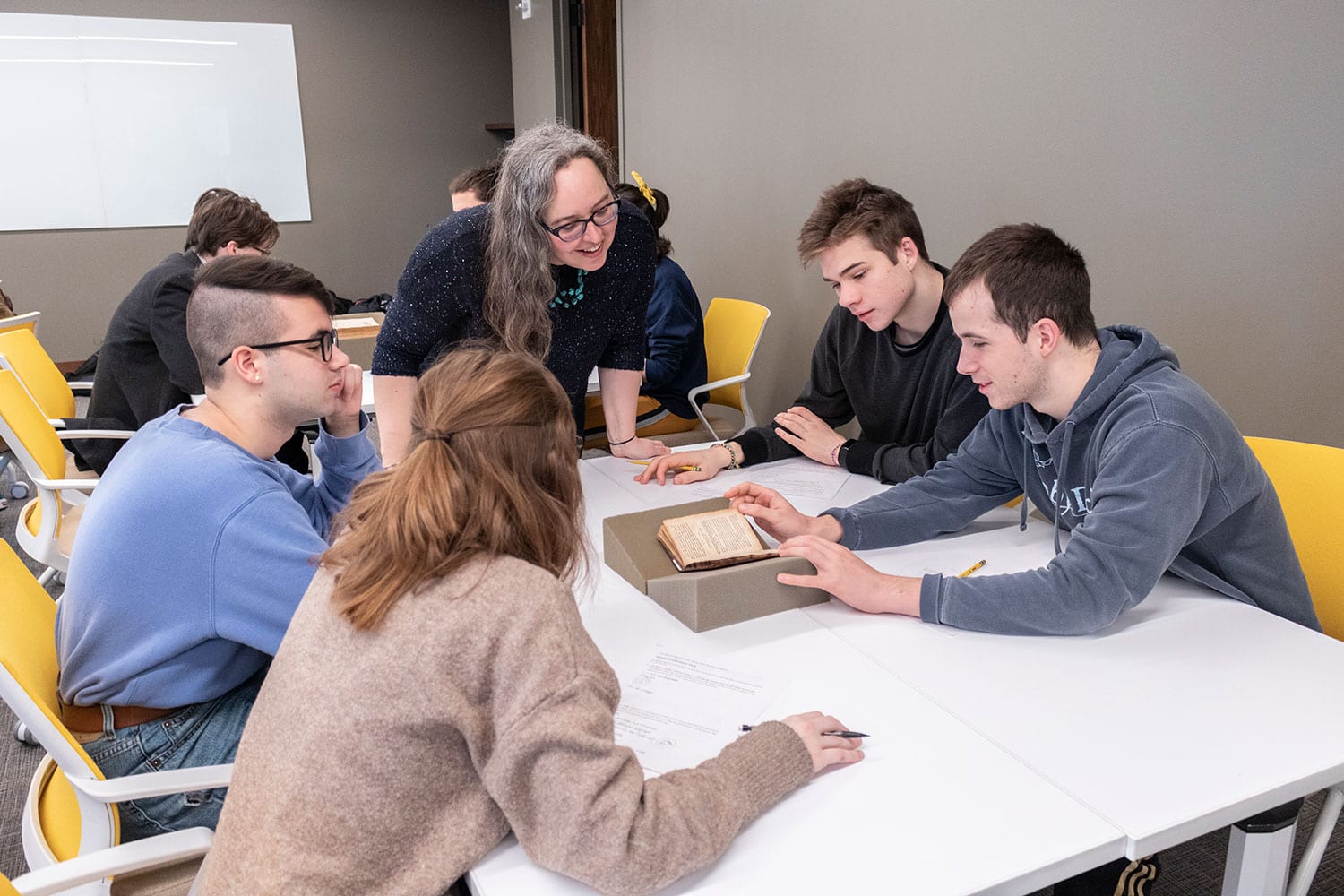Class Name: “On Higher Ed: Introduction to Critical University Studies”
Taught By: Visiting Assistant Professor of the Writing Program and Peace, Justice, and Human Rights Shannan Hayes
Says Hayes:
This first-year writing seminar asks what college is, as a historical, political-economic, and cultural institution.We think about the way that college shapes individual experiences, subjectivities, desires, hopes, and dreams. We read about higher education as a space of changing cultural practices and values. We historicize the impact of political-economic structures on higher education. We analyze the way that knowledges are produced and divided throughout the academy. And finally, we take the time to reflect on how different structural conditions appear within our own personal experiences during this first-semester transition into higher education. Through such reflections we aim to become more intentional, less self-critical, and more joyful agents in these years of our lives called “college.”
The idea for this class came out of a few observations from last academic year. First, the students and I, in my spring “Real Work & Dream Jobs” course, became interested in the continuum between college and work in many of the films about work that we watched. We noticed the way that college kept popping up, ideologically, as both an escape from the unpleasant realities of work and a means to some horizonal promise of better work. It seemed natural to me to add a course about the cultural institution of “college” to my teaching portfolio in which I already teach about the cultural institution of “work.”
The idea for this class additionally came out of a deep desire to help students feel less isolated in the anxiety they may feel during the college experience, and do so by reflecting collectively on their experiences, while thinking historically and critically about what larger factors might contribute to their individualized feelings. I also feel invested in helping students build skills that help them–perhaps even joyfully–process through the stress of writing deadlines, as I’ve noticed over the years the way that writing deadlines can often spark larger crisis events for students.
I feel excited about the opportunity to do a lot of “meta” reflection in this class. We talk about the process of how we are trying to figure out an author’s claim, as we try to figure out the author’s claim. We talk about the different ways texts from different disciplines provide “evidence” for their claims, and the varied feelings of reading different kinds of texts. We identify places in readings where authors build their arguments by weaving in the arguments of other authors, while we read writing pedagogy texts that give us phrases and tools for incorporating this scholarly practice into our own writing. And we do a lot of “free writing” about our dynamic relationships to college, as we learn to think through and with different scholars’ analytic frameworks.
Learn about other courses offered by the Writing Program.
Image: Inge Mahn’s “Schulklasse.” Credit: Hirshhorn Museum and Sculpture Garden, Smithsonian Institution, Washington, DC, Joseph H. Hirshhorn Purchase Fund, 2018
Cool Classes is a recurring series on the Haverblog that highlights interesting, unusual, and unique courses that enrich the Haverford College experience.

